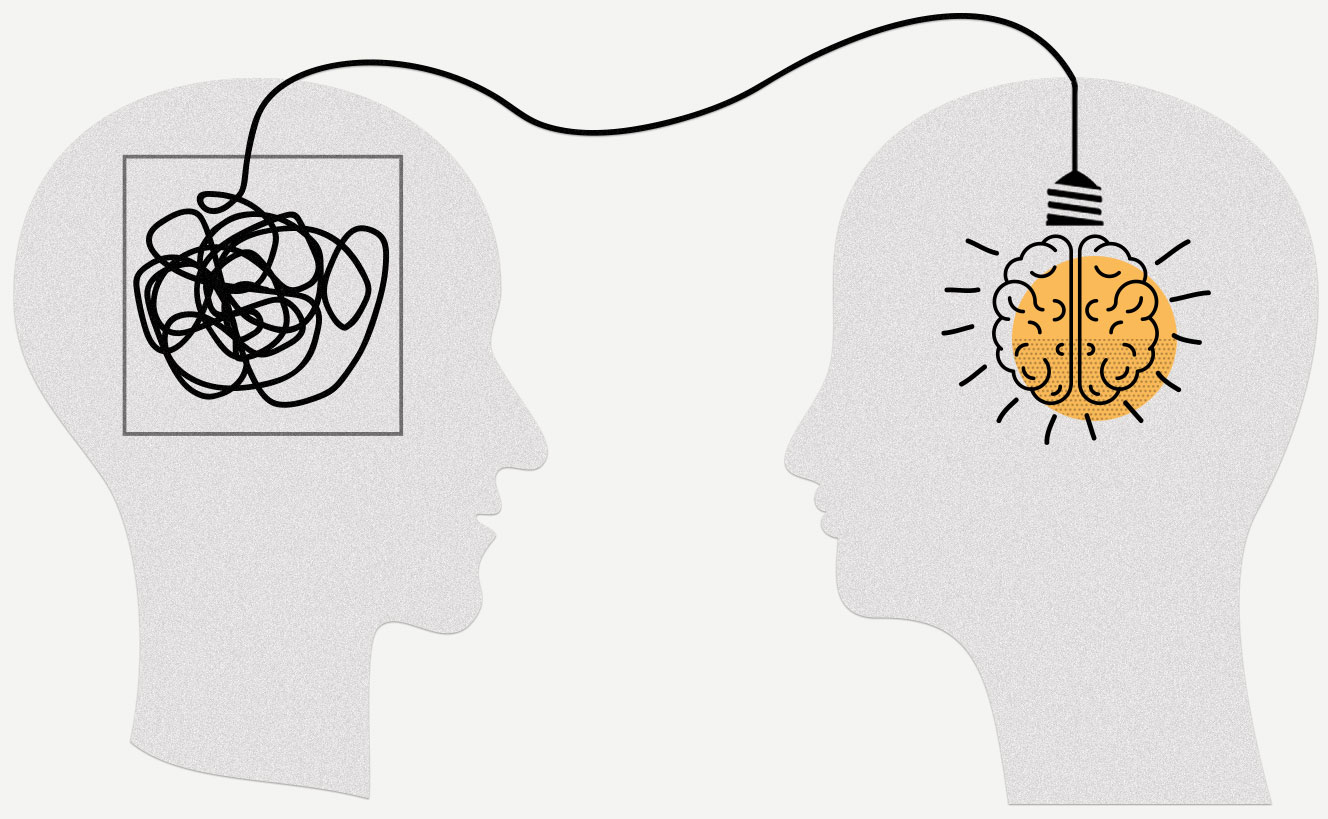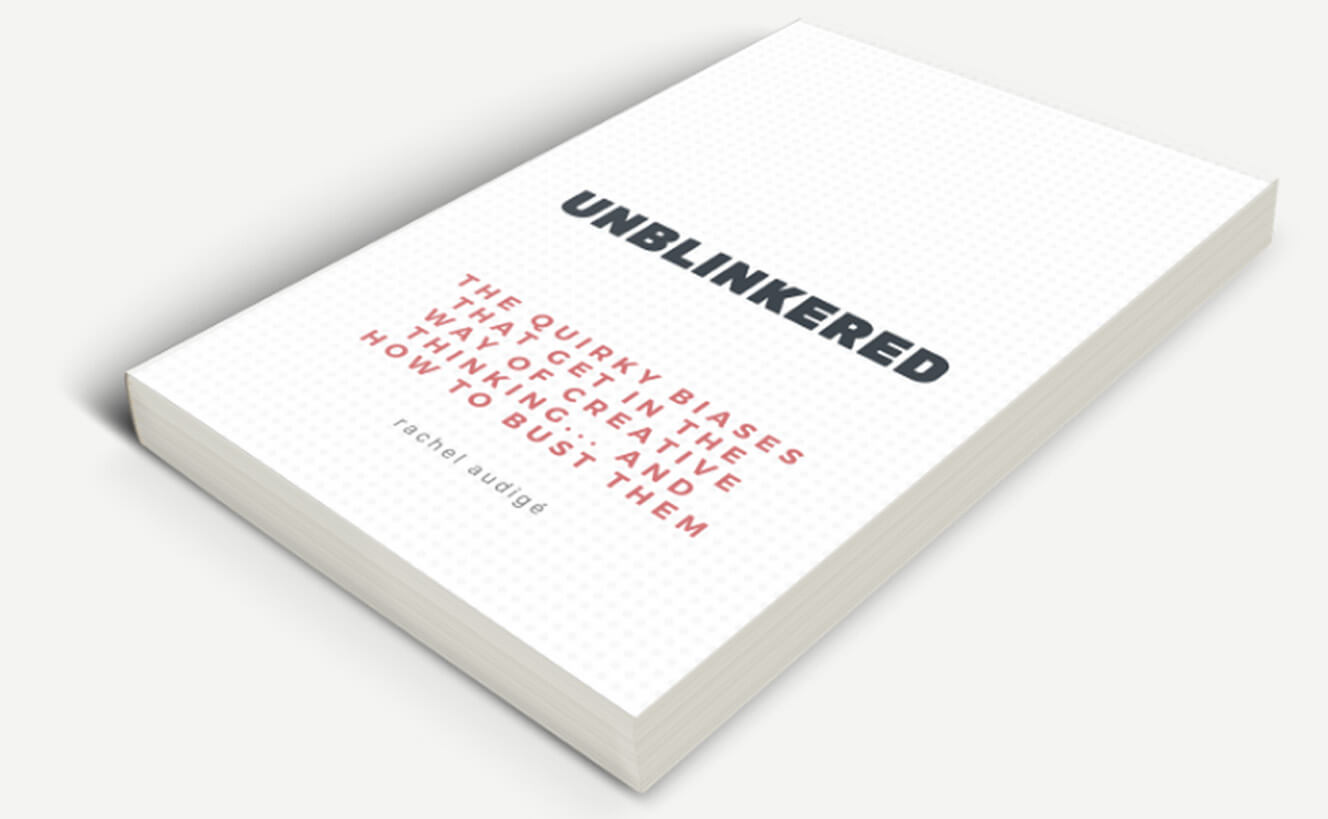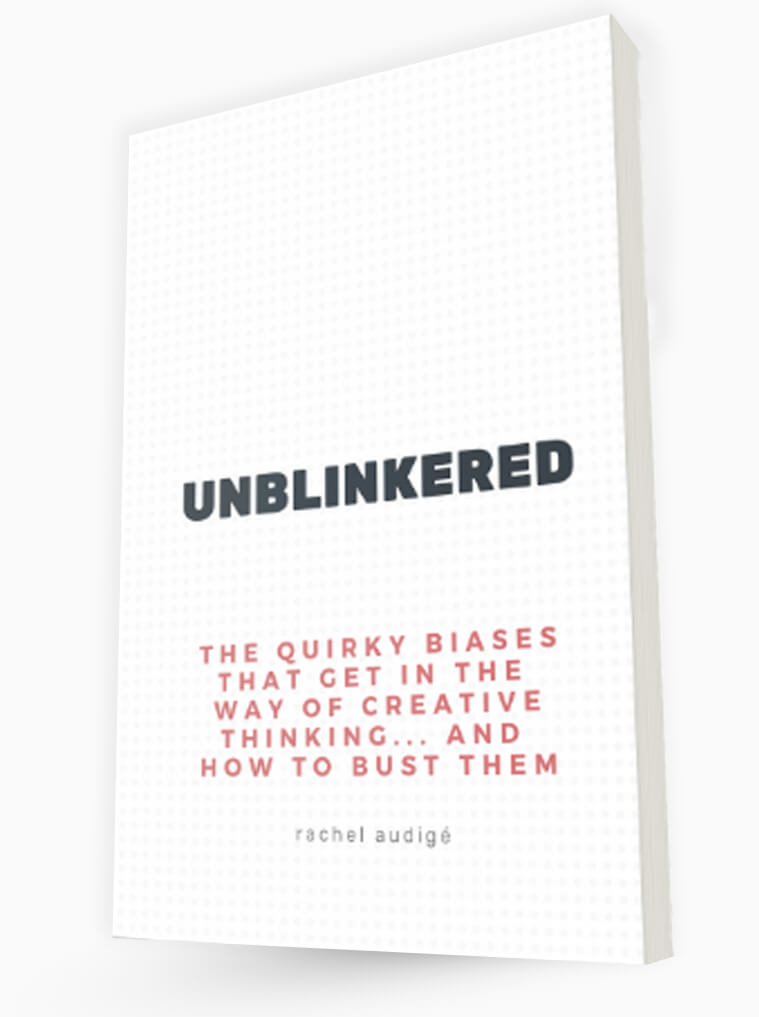Equip your teams to innovate on demand - using what you have

Is something getting in the way of your innovation efforts? Learn how to be less 'blinkered'...

Want to innovate more effectively?
Do a 15-minute course that gives you Systematic Inventive Thinking in a nutshell. >

Let’s come up with coherent and compelling answers to the big questions about your business: Why do you do what you do? Where are you going? What’s in in for the customer? (which customers?), So what for your employees, what do you stand for? Who are you as a brand?
The most meaningful and pragmatic way of tackling your marketing strategy is to work through how you manage value from 'understanding' through to 'measuring'. A neat and helpful framework I adapted from my MBA and have used effectively with a range of clients in strategic work.
We know we need to be strategic but all too often, our strategic thinking is bound by tools & frameworks that are cognitively distant from the real world and will not lead to the creative solutions we require. Rachel offers robust ways to challenge assumptions and biases in a systematic way, break existing connections and making new ones, harness constraints and even flip problems and threats into resources! It's very exhilarating and growth mindset!
One of the many upsides of SIT is that it is so learnable. Give your teams the skills to harness the SIT method on demand and to understand when to use it with other toolsets. Ask for a training proposal for your company or in your area. See 'Solutions' tab for online and F2F options.
When you want to be more productive, you often eliminate something. I tackle productivity & process improvements differently. I will take you down unexplored paths getting to ideas faster.
Have me help you to develop new products, challenge or improve existing ones and build an innovation pipeline or offering.
S.I.T offers a problem solving approach that not only embraces the problem and challenges assumptions but helps push the inventiveness of your ideas further.
I can help you develop an innovation strategy, framework and community that fits your strategy, aspirations and culture.
I help organisations think differently and unearth ideas that are hiding in plain view. I offer innovation SKILLS (F2F & online training), RESULTS (workshops/projects) & STRATEGY. I harness many years in marketing and innovation roles and run Systematic Inventive Thinking (S.I.T.) in Australia and New Zealand. I combine this with my own strategic frameworks as well as complementary tools such as Time to Think to help you think well and Lego® Serious Play® to help you express and prototype ideas. Get in touch: rachel@rachelaudige.com.
We are born creative but not everyone stays that way. I can help you become efficient and resourceful creative thinkers again in all areas of your work.
There are lots of things holding us back but what I encounter in every organisation is 'cognitive fixedness'. That is that state of 'stuckness' when we cannot see alternative ways of doing things. I believe that innovation is often the result of this fixedness being broken. Break this and you will be able to redesign a process, fill your product pipeline, stress-test a design, de-risk a schedule, rethink your strategy, make your messaging stickier or come up with more resourceful and radical solutions to your problems. I promise to shift what you thought about creativity!
If you're after Systematic Inventive Thinking SKILLS go straight to my training platform, click here. You can get a taste of https://www.sitsite.com/ in the Starter Course or dive into my mini-courses for short, 10-minute sessions on specific use cases (Process redesign, Service innovation, New Product Development and Sticky Messaging).
If you want RESULTS, request a workshop in your business. We can do a Discovery session where you dip your toe in or you can do a Project and go for higher impact. I will take your team from idea harvesting to honing through to convergence and action plans applying a robust method throughout. Ask for case studies.
If you are more interested in thinking differently about your STRATEGY, let me talk you through the value creation model and strategic pyramid I use. To explore what I it takes to foster innovation in your organisation, check out my Innovation Wheel
S.I.T. is a method and a company born in Tel Aviv in the mid 1990s. Organisations in Australia and New Zealand find S.I.T. impactful because it is more than just a process to follow; it shifts our thinking. S.I.T. is
ANZ-based clients have included: Thales, Woodside Energy, Ford, Health Purchasing Victoria, Fresh Select, Medibank, Telstra Wholesale, NAB, Legrand Industries, RACV, Vinci Group, UTS, Elanco, Dulux, Kagome, Tonkin, Northrop, NECA, UQ.

